How to start a currency exchange business in the USA?
Launching a currency exchange business in the USA is a promising venture, fueled by the country’s role in global commerce and the steady flow of international travelers and remittances. However, the path to success is paved with regulatory hurdles, operational planning, and strategic execution. Below is a comprehensive guide, within 700 words, detailing each critical step to help you establish a compliant and profitable currency exchange business.
Market Research and Analysis
Begin with in-depth market research to understand the demand for currency exchange in your target area. Analyze the local market, identify your competitors, and pinpoint any service gaps you can fill. Consider your ideal customers—tourists, international students, business travelers, or local residents sending money abroad. A robust market analysis will help you assess the feasibility of your business and inform your strategic decisions.
Defining Your Business Model and Monetization Strategy
Next, choose your business model. You can focus on B2C (serving individual customers) or B2B (serving businesses and financial institutions), or adopt a hybrid approach. Decide how you’ll generate revenue—common strategies include:
-
Spread-based pricing: Earning the difference between buy and sell rates.
-
Transaction fees: Charging a fee per transaction.
-
Subscription models: Offering premium services for a recurring fee.
A diversified revenue stream can improve your business’s resilience and profitability.
Regulatory Compliance and Licensing
Currency exchange is a highly regulated industry in the USA. Compliance is not optional—it’s the backbone of your business’s legitimacy and longevity. Key steps include:
-
Register as a Money Services Business (MSB): All currency exchange businesses must register with the Financial Crimes Enforcement Network (FinCEN).
-
Obtain State Licenses: Each state has its own licensing requirements, which may include application fees, background checks, surety bonds, and proof of financial stability.
-
Implement AML/KYC Protocols: Adhere to Anti-Money Laundering (AML) and Know Your Customer (KYC) regulations to prevent fraud and illicit activity. This involves verifying customer identities, monitoring transactions, and reporting suspicious activities.
-
Data Security: Safeguard customer data with robust cybersecurity measures, complying with relevant data protection laws.
Developing a Business Plan
A comprehensive business plan is your blueprint for success. It should include:
-
Market analysis and competitive landscape
-
Business model and services offered
-
Financial projections and funding needs
-
Marketing and growth strategies
-
Operational procedures and compliance measures
A solid business plan is also essential for securing funding from banks or investors.
Securing Funding
Estimate your startup costs, which may include licensing fees, rent, equipment, staffing, technology, and initial cash reserves. Funding options include:
-
Personal savings
-
Business loans
-
Investors
-
Grants or government programs
A well-prepared business plan will increase your chances of obtaining financing.
Setting Up Operations and Technology
Location is critical—choose a site with high foot traffic, such as airports, tourist areas, or business districts. Invest in secure premises, reliable currency handling equipment, and modern transaction software. Technology should support real-time exchange rates, transaction recording, compliance, and customer management.
Hiring and Training Staff
Recruit staff with experience in financial services and customer relations. Provide comprehensive training on compliance, customer service, and security protocols. Well-trained employees are essential for maintaining trust and operational efficiency.
Marketing Your Business
Develop a marketing plan to attract your target customers. Use a mix of digital marketing, partnerships with travel agencies or local businesses, and community outreach. Competitive rates, excellent service, and value-added offerings (such as wire transfers or bill payments) can help differentiate your business.
Innovative Marketing Approaches
To thrive in the competitive currency exchange market, a robust and creative marketing strategy is essential. Begin by developing a strong brand identity that communicates reliability and trust—key attributes that customers seek when dealing with financial transactions. A recognizable and credible brand helps distinguish your business from competitors and builds lasting customer relationships.
Leverage Digital Platforms
In today’s digital landscape, an effective online presence is crucial. Utilize social media platforms to engage with your audience, share educational content, and build a community around your services. Targeted digital advertising and search engine optimization (SEO) can increase your visibility, driving organic traffic to your website and attracting potential clients searching for currency exchange services. High-quality, informative content—such as guides on how currency exchange works or tips for travelers—can position your business as an industry authority.
Personalized Services and Customer Experience
Modern customers expect tailored solutions. Offer personalized services, such as custom exchange rates for frequent clients or business partners, and ensure transparent, competitive pricing. Providing clear information about fees and rates fosters trust and encourages repeat business. Encourage satisfied customers to share testimonials and success stories, which can further enhance your credibility and attract new clients.
Educational Initiatives
Demystifying the currency exchange process for beginners through educational content—blog posts, videos, or webinars—can help establish your business as a helpful and trustworthy resource. This not only attracts new customers but also empowers them to make informed decisions, increasing their loyalty to your brand.
Networking and Community Engagement
Participate in financial expos, local business events, and industry conferences to network with potential partners and customers. These events offer opportunities to showcase your services, learn about industry trends, and build valuable relationships within the financial sector.
Ongoing Compliance and Adaptation
Stay current with regulatory changes and renew your licenses as required. Maintain accurate records, submit regular reports to authorities, and continually review your compliance protocols. Adapting to new regulations and market trends is vital for long-term success.
Conclusion
Starting a currency exchange business in the USA requires meticulous planning, strict regulatory adherence, and a customer-centric approach. By conducting thorough research, securing the right licenses, investing in technology and staff, and maintaining ongoing compliance, you can build a trusted and profitable enterprise in this dynamic industry

